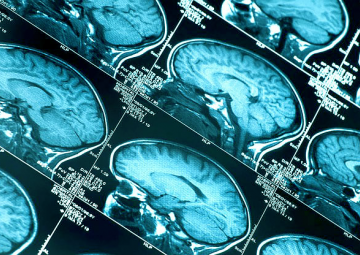
Background
There is a major move to characterise the different pathologies that contribute to the various types of dementia. Alzheimer's Disease (AD) researchers mainly focus on biomarkers of Amyloid, Tau, and Neurodegeneration to define AD by the ATN framework, with accumulation of brain amyloid and tau protein variants being measured using PET brain imaging or in cerebrospinal fluid (CSF) and blood. Since cerebrovascular disease often occurs alongside AD pathology, the focus needs to be extended to include a ‘V’ (Vascular brain pathology).
Vascular brain pathologies (V) include a broad range of insults ranging from ischemia, haemorrhage, white matter lesions, cortical microinfarcts, gross and microscopic bleeds, atherosclerosis, arteriolosclerosis, dilated perivascular spaces, impaired blood-brain barrier integrity, cerebral amyloid angiopathy and hippocampal sclerosis. The challenge is to determine how these pathologies relate to cognitive impairment, alone and in combination. Considering the multitude and heterogeneity of the vascular lesions, multiple biomarker strategies are necessary. The major ones to be studied will include neuroimaging, retinal imaging, and fluid biomarkers. With the introduction of potential disease-modifying treatments, it is critical to quantify brain pathology in order to determine which pathologies are affected by these novel treatments.
This project aims to bring together studies of vascular cognitive impairment and dementia, stroke, hypertension, diabetes, kidney disease, and other disorders involving vascular pathology to:
- Identify and validate biomarkers of Vascular Cognitive Impairment and Dementia and demonstrate their research and clinical utility. Multiple biomarker strategies including neuroimaging, retinal and fluid biomarkers will be investigated.
- Facilitate the adoption of biomarkers for diagnosis and prognosis in clinical practice and research, and as outcome measures in intervention studies.
Specifically, we are asking how various biomarkers measured in individuals with Vascular Cognitive Impairment and Dementia differ from unaffected control subjects? We also seek to determine which combination of neuroimaging, retinal, and fluid biomarkers can accurately predict vascular dementia diagnosis and/or reflect the presence of significant cerebrovascular disease to account for dementia and cognitive decline.
Research Personnel
- Professor Perminder Sachdev
- Dr Tharusha Jayasena
- Dr Vibeke Catts
- Dr Anne Poljak
- Dr Karen Mather
- Dr Wei Wen
- Dr Jiyang Jiang
- Dr Satoshi Hosoki
- Dr Danit Saks
- Dr Anbu Thalamuthu
- Ms Gurpreet Hansra
- Dr Tessa Helman





